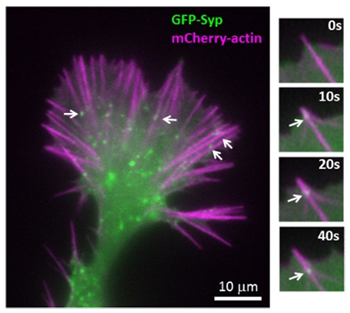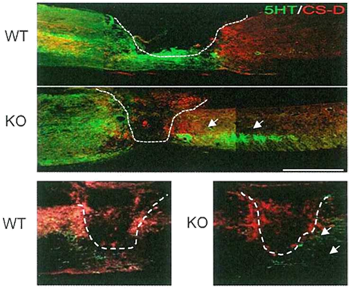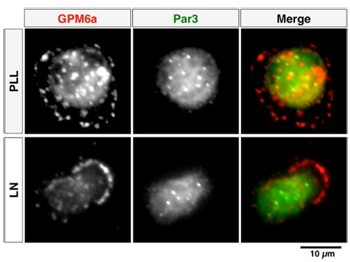Molecular Cell Biology
HOME > Activities > Basic Medicine > Molecular Cell Biology
1.Research Summary
In the field of neurochemistry, members in our department (Department of Neurochemistry and Molecular Cell Biology) are studying the principles of three significant events in neuroscience: “formation of the brain (how the neural network is formed),” “expression of brain functions (how the neural network acts),” and “repair of the brain damage (whether the neural network can be regenerated)” based on the interactions among proteins. We are studying the molecular principles common to non-nervous systems from the aspects of vesicular traffic, the cytoskeletal rearrangement, and protein phosphorylation.
2.Research Subjects
A. Analysis of the growth cone functions based on the novel molecular pathways
1) Identification of the protein phosphorylation crucial to the growth
cone behavior, revealed by phosphoproteomics
2) Visualization of the vesicular trafficking associated with the growth
cone functions
3) Analysis of new signaling pathways in the neuronal polarization
B. Analysis of the mice lacking in the key enzymes for chondroitin sulfate (CS) synthesis
1) Roles of perineuronal nets (PNN) for the synaptic plasticity from the
molecular aspects
2) The significance of CS for nerve growth and development
3) CS Functions in multi-organs and pathogenesis of the human diseases
as a mouse model
3.Research Results
|
[Area] Growth cone |
|
|
[Research subject] Visualization of the vesicular trafficking associated with the growth cone functions |
|
|
[Description] |
[Photographs]
|
|
[Area] Chondroitin sulfate |
|
|
[Research subject] Efficient repair mechanism of spinal code injury |
|
|
[Description] |
[Photographs]
Increased regenerating axons in CSGalNAcT1-KO |
|
[Area] Growth cone |
|
|
[Research subject] Analysis of new signaling pathways in the neuronal polarization |
|
|
[Description] |
[Photographs]
The polarized distribution of GPM6a in the neuron cultured on laminin (LN) |



